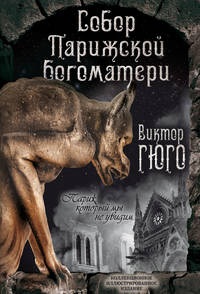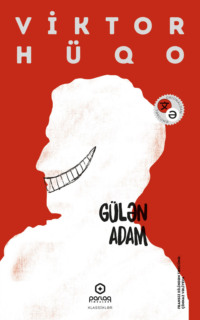 полная версия
полная версияNapoleon the Little
"I, the undersigned, declare upon my honour, that I accept most thankfully the pardon offered me by Prince Louis-Napoleon, and I engage never to become a member of any secret society, to respect the law, and be faithful to the Government that the country has chosen by the votes of the 20th and 21st of December, 1851."
Let not the meaning of this grave performance be misunderstood. This is not clemency granted, it is clemency implored. This formula: "Ask us for your pardon," means: "Grant us our pardon." The murderer, leaning over his victim and with his knife raised, cries: "I have waylaid you, seized you, hurled you to the earth, despoiled and robbed you, passed my knife through your body, and now you are under my feet, your blood is oozing from twenty wounds; say you repent, and I will not finish you." This repentance exacted by a criminal from an innocent man, is nothing else than the outward form which his inward remorse assumes. He fancies that he is thus safeguarded against his own criminality. Whatever expedient he may adopt to deaden his feelings, although he may be for ever ringing in his own ears the seven million five hundred thousand little bells of his plebiscite, the man of the coup d'état reflects at times; he catches vague glimpses of a tomorrow, and struggles against the inevitable future. He must have legal purgation, discharge, release from custody, quittance. He exacts it from the vanquished, and at need puts them to the torture, to obtain it. Louis Bonaparte knows that there exists, in the conscience of every prisoner, of every exile, of every man proscribed, a tribunal, and that that tribunal is beginning his prosecution; he trembles, the executioner feels a secret dread of his victim; and, under pretext of a pardon accorded by him to that victim, he forces his judges to sign his acquittal.
Thus he hopes to deceive France, which, too, is a living conscience and a watchful tribunal; and that when the hour for passing sentence shall strike, seeing that he has been absolved by his victims, she will pardon him. He deceives himself. Let him cut a hole in the wall on another side, he will not escape through that one.
V
THE 5TH OF APRIL, 1852
On the 5th of April, 1852, this is what was witnessed at the Tuileries. About eight in the evening, the ante-chamber was filled with men in scarlet robes, grave and majestic, speaking with subdued voices, holding in their hands black velvet caps, bedecked with gold lace; most of them were white-haired. These were the presidents and councillors of the Court of Cassation, the first presidents of the Courts of Appeal, and the procureurs-general: all the superior magistracy of France. These persons were kept waiting in the ante-chamber. An aide-de-camp ushered them in and left them there. A quarter of an hour passed, half an hour, an hour; they wandered up and down the room, conversing, looking at their watches, awaiting the ringing of the bell. After more than an hour of tedious waiting they perceived that they had not even chairs to sit upon. One of them, M. Troplong, went to another room where the footmen were, and complained. A chair was brought him. At last a folding-door was thrown open; they rushed pell-mell into a salon. There a man in a black coat was standing with his back against the chimney-piece. What errand summoned these men in red robes to this man in a black coat? They came to tender him their oaths. The man was M. Bonaparte. He nodded, and, in return, they bowed to the ground, as is meet. In front of M. Bonaparte, at a short distance, stood his chancellor, M. Abbattucci, late a liberal deputy, now Minister of Justice to the coup d'état. The ceremony began. M. Abbattucci delivered a discourse, and M. Bonaparte made a speech. The Prince drawled a few contemptuous words, looking at the carpet; he spoke of his "legitimacy;" after which the magistrates took the oath. Each in turn raised his hand. While they were swearing, M. Bonaparte, his back half turned to them, laughed and chatted with his aides-de-camp, who were grouped behind him. When it was over he quite turned his back upon them, and they departed, shaking their heads, humbled and ashamed, not for having done a base deed, but because they had had no chairs in the ante-chamber.
As they were departing, the following dialogue was overheard: – "That," said one of them, "was an oath it was necessary to take." "And," said another, "which it will be necessary to keep." "Yes," said a third, "like the master of the house."
All this is pure servility. Let us proceed.
Among these first presidents who swore fidelity to Louis Bonaparte, were a certain number of former peers of France, who, as such, had passed upon Louis Bonaparte the sentence of perpetual imprisonment. But why should we look back so far? Let us still proceed; here is something even better. Among these magistrates, there were seven individuals, by name, Hardouin, Moreau, Pataille, Cauchy, Delapalme, Grandet, and Quesnault. Prior to the 2nd of December these seven men composed the High Court of Justice; the first, Hardouin, was president, the last two, deputy-presidents, the other four, judges. These men had received and accepted from the Constitution of 1848 a mandate thus conceived: —
"Article 68. Every measure by which the President of the Republic shall dissolve the National Assembly, prorogue it or impede the performance of its decrees, is high treason.
"The judges of the High Court shall thereupon immediately assemble, under penalty of forfeiture; they shall convoke the jurors in such place as they shall appoint, to proceed to the trial of the President and his accomplices; they shall themselves appoint magistrates to perform the functions of the national administration."
On the 2nd of December, in the face of the flagrant felony, they had begun the trial, and appointed a procureur-general, M. Renouard, who had accepted the office, to proceed against Louis Bonaparte on the charge of high treason. Let us add the name of Renouard to the seven. On the 5th of April, they were, all eight, present in the antechamber of Louis Bonaparte; we have just seen what was their business there.
Here it is impossible not to pause.
There are certain melancholy thoughts upon which one must have the strength to insist; there are sinks of ignominy we must have the courage to sound.
Cast your eyes upon that man. He was born at hazard, by misfortune, in a hovel, in a cellar, in a cave, no one knows where, no one knows of whom. He came out of the dust to fall into the mire. He had only so much father and mother as was necessary for his birth, after which all shrank from him. He has crawled on as best he could. He grew up bare-footed, bare-headed, in rags, with no idea why he was living. He can neither read nor write, nor does he know that there are laws above him; he scarcely knows there is a heaven. He has no home, no family, no creed, no book. He is a blind soul. His intellect has never opened, for intellect opens only to light as flowers open only to the day, and he dwells in the dark. However, he must eat. Society has made him a brute beast, hunger makes him a wild beast. He lies in wait for travellers on the outskirts of a wood, and robs them of their purses. He is caught, and sent to the galleys. So far, so good.
Now look at this other man; it is no longer the red cap, it is the red robe. He believes in God, reads Nicole, is a Jansenist, devout, goes to confession, takes the sacrament. He is well born, as they say, wants nothing, nor has ever wanted anything; his parents have lavished everything on his youth – trouble, instruction, advice, Greek and Latin, masters in every science. He is a grave and scrupulous personage; therefore he has been made a magistrate. Seeing this man pass his days in meditating upon all the great texts, both sacred and profane; in the study of the law, in the practice of religion, in the contemplation of the just and unjust, society placed in his keeping all that it holds most august, most venerable – the book of the law. It made him a judge, and the punisher of treason. It said to him: "A day may come, an hour may strike, when the chief by physical force shall trample under his foot both the law and the rights of man; then you, man of justice, you will arise, and smite with your rod the man of power." – For that purpose, and in expectation of that perilous and supreme day, it lavishes wealth upon him, and clothes him in purple and ermine. That day arrives, that hour, unique, pitiless, and solemn, that supreme hour of duty; the man in the red gown begins to stutter the words of the law; suddenly he perceives that it is not the cause of justice that prevails, but that treason carries the day. Whereupon he, the man who has passed his life in imbuing himself with the pure and holy light of the law, that man who is nothing unless he be the contemner of unmerited success, that lettered, scrupulous, religious man, that judge in whose keeping the law has been placed, and, in some sort, the conscience of the state, turns towards triumphant perjury, and with the same lips, the same voice in which, if this traitor had been vanquished, he would have said:
"Criminal, I sentence you to the galleys," he says:
"Monseigneur, I swear fealty to you."
Now take a balance, place in one scale the judge, in the other the felon, and tell me which side kicks the beam.
VI
EVERYWHERE THE OATH
Such are the things we have beheld in France, on the occasion of the oath to M. Bonaparte. Men have sworn here, there, everywhere; at Paris, in the provinces, in the north, in the south, in the cast, and in the west. There was in France, during a whole month, a tableau of hands raised, of arms outstretched, and the final chorus was: "We swear," etc. The ministers placed their oaths in the hands of the President, the prefects in those of ministers, and the mob in those of the prefects. What does M. Bonaparte do with all these oaths? Is he making a collection of them? Where does he put them? It has been remarked that none but unpaid functionaries have refused the oath, the councillors-general, for instance. The fact is, that the oath has been taken to the budget. We heard on the 29th of March a senator exclaim, in a loud voice, against the omission of his name, which was, so to speak, vicarious modesty. M. Sibour, Archbishop of Paris swore;46 M. Frank Carré, procureur-general to the Court of Peers in the affair of Boulogne, swore;47 M. Dupin, President of the National Assembly on the 2nd of December, swore48 – O, my God! it is enough to make one wring one's hands for shame. An oath, however, is a sacred obligation.
The man who takes an oath ceases to be a man, he becomes an altar, upon which God descends. Man, that infirmity, that shadow, that atom, that grain of sand, that drop of water, that tear dropped from the eye of destiny; man, so little, so weak, so uncertain, so ignorant, so restless; man, who lives in trouble and in doubt, knowing little of yesterday, and nothing of to-morrow, seeing just enough of his road to place his foot before him, and then nothing but darkness; who trembles if he looks forward, is sad if he looks back; man, enveloped in those immensities and those obscurities, time, space, and being, and lost in them; having an abyss within him, his soul; and an abyss without, heaven; man, who at certain hours bows his head with a sacred horror, under every force of nature, under the roar of the sea, under the rustling of the trees, under the shadow of the mountain, under the twinkling of the stars; man, who can not lift his head by day, without being blinded by the light, nor by night, without being crushed by the infinite; man, who knows nothing, who sees nothing, who hears nothing, who may be swept away to-morrow, to-day, now, by the waves that pass, by the breeze that blows, by the pebble that falls, by the hour that strikes; on a certain day, man, that trembling, stumbling being, the plaything of chance and of the passing moment, rises suddenly before the riddle that is called human life, feels that there is within him something greater than this abyss, – honour! something stronger than fatality, – virtue! something more mysterious than the unknown, – faith! and alone, feeble and naked, he says to all this formidable mystery that envelopes him: "Do with me what you will, but I will do this, and I will not do that;" and proud, tranquil, serene, creating by a word a fixed point in the sombre instability that fills the horizon, as the mariner casts his anchor in the sea, he casts his oath into the future.
O plighted oath! admirable confidence of the just man in himself! Sublime permission given by God to man, to affirm! It is all over. There are no more of them. Another of the soul's splendours that has vanished!
BOOK VIII
PROGRESS CONTAINED IN THE COUP D'ÉTAT
I
THE QUANTUM OF GOOD CONTAINED IN EVIL
Among us democrats, many well-meaning minds were stupefied by the event of the 2nd of December. It disconcerted some, discouraged others, and terrified many. I have seen some who cried: Finis Poloniae. As for myself, since at certain times I am obliged to say, I, and to speak in the face of history as a witness, I proclaim that I saw that event without perturbation. I say more than this, that at times, in the face of the 2nd of December, I declare myself satisfied.
When I can abstract myself from the present, when for a moment I can turn my eyes away from all the crimes, from all the blood spilt, from all the victims, from all the proscribed, from those hulks that echo the death rattle, from those deadful penal settlements of Lambessa and Cayenne, where death is swift, from that exile where death is slow, from this vote, from this oath, from this vast stain of shame inflicted upon France, which is growing wider and wider each day; when, forgetting for a few moments these painful thoughts, the usual obsession of my mind, I succeed in confining myself within the severe calmness of the politician, and in considering, not the fact, but the consequences of the fact; then, among many results, disastrous beyond doubt, a considerable, real, enormous progress becomes manifest to me, and, from that moment, while I am still of those whom the 2nd of December exasperates, I am no longer of those whom it afflicts.
Fixing my eyes upon certain points in the future, I say to myself: "The deed was infamous, but the result is good."
Attempts have been made to explain the inexplicable victory of the coup d'état in a hundred ways. A true balance has been struck between all possible resistances, and they are neutralized one by the other: the people were afraid of the bourgeoisie, the bourgeoisie were afraid of the people; – the faubourgs hesitated before the restoration of the majority, fearing, wrongfully however, that their victory would bring back to power that Right which is so thoroughly unpopular; the shopocracy recoiled before the red republic; the people did not understand; the middle classes shuffled; some said, "Whom shall we send to the legislative palace?" others: "whom are we going to see at the Hotel de Ville?" In fine, the rude repression of 1848, the insurrection crushed by cannon-shot, the quarries, the casements, and the transportations – a living and terrible recollection; – and then – Suppose some one had succeeded in beating the call to arms! Suppose a single legion had sallied forth! Suppose M. Sibour had been M. Affre, and had thrown himself in the midst of the bullets of the pretorians! Suppose the High Court had not suffered itself to be driven away by a corporal! Suppose the judges had followed the example of the representatives, and we had seen the scarlet gowns on the barricades, as we saw the scarfs! Suppose a single arrest had miscarried! Suppose a single regiment had hesitated! Suppose the massacre on the boulevards had not taken place, or had turned out ill for Louis Bonaparte! etc., etc., etc. This is all true, and yet what has been, was what was to be. Let us say again, under the shadow of that monstrous victory vast and definitive progress is taking place. The 2nd of December succeeded, because in more than one point of view, I repeat, it was good that it should succeed. All explanations are just, but all are vain. The invisible hand is mingled in all this. Louis Bonaparte committed the crime; Providence brought about the result.
In truth, it was essential that order should come to the end of its logic. It was essential that people should learn, and should learn for all time, that, in the mouths of the men of the past, that word order signifies false oaths, perjury, pillage of the public cash-box, civil war, courts-martial, confiscation, sequestration, deportation, transportation, proscription, fusillades, police, censorship, degradation of the army, disregard of the people, debasement of France, a dumb Senate, the tribune overthrown, the press suppressed, a political guillotine, murder of liberty, garroting of the right, violation of laws, sovereignty of the sword, massacre, treason, ambuscades. The spectacle that we have before our eyes is a profitable spectacle. What we see in France since the 2nd of December is the debauch of order.
Yes, the hand of Providence is in it. Reflect, too, upon this: for fifty years the Republic and the Empire have filled men's imaginations, the one with its souvenirs of terror, the other with its souvenirs of glory. Of the Republic men saw only 1793, that is to say, the terrible revolutionary necessity, – the furnace; of the Empire they saw only Austerlitz. Hence a prejudice against the Republic, and prestige for the Empire. Now, what is the future of France to be? is it the Empire? No, it is the Republic.
It became necessary to reverse that situation, to suppress the prestige of that which cannot be restored, and to suppress the prejudice against that which must be. Providence did it: it destroyed those two mirages. February came and took away from the Republic its terror; Louis Bonaparte came and deprived the Empire of its prestige. Henceforth, 1848, fraternity, is superimposed upon 1793, terror; Napoleon the Little is superimposed upon Napoleon the Great. The two grand things, one of which alarmed and the other dazzled, are receding. We perceive '93 only through its justification, and Napoleon only through his caricature; the foolish fear of the guillotine vanishes, the empty imperial popularity disappears. Thanks to 1848, the Republic no longer terrifies; thanks to Louis Bonaparte, the Empire no longer fascinates. The future has become possible. These are the secrets of the Almighty!
But the word republic is not sufficient; it is the thing republic that is wanting; well, we shall have the thing with the word. Let us develop this thought.
II
THE FOUR INSTITUTIONS THAT STAND OPPOSED TO THE REPUBLIC
Awaiting the marvellous but tardy simplifications which the union of Europe and the democratic federation of the continent will some day bring forth, what will be in France, the form of the social edifice, of whose ill-defined and luminous outlines the thinking man already has a glimpse, through the darkness of dictatorships?
That form is this: —
The sovereign commune, ruled by an elective mayor; universal suffrage everywhere, subordinate to the national unity only in respect to acts of general concern; so much for the administration. Syndics and upright men arranging the private differences of associations and industries; the jury, magistrate of the fact, enlightening the judge, magistrate of the law; elective judges; so much for justice. The priest excluded from everything except the church, living with his eye fixed on his book and on Heaven, a stranger to the budget, unknown to the state, known only to his flock, no longer possessing authority, but possessing liberty; so much for religion. War confined to the defence of the territory. The whole nation constituting a national guard, divided into three districts, and able to rise as one man; so much for power. The law for ever, the right for ever, the ballot for ever, the sword nowhere.
Now, what were the obstacles to this future, to this magnificent realization of the democratic ideal?
There were four material obstacles, namely: —
The standing army.Centralized administration.The office-holding clergy.The irremovable magistracy.III
SLOW MOVEMENT OF NORMAL PROGRESS
What these four obstacles are, what they were even under the Republic of February, even under the Constitution of 1848; the evil they produced, the good they prevented, what sort of past they perpetuated, what excellent social order they postponed, the publicist saw, the philosopher knew, the nation did not know.
These four institutions, immense, ancient, solid, supported one upon another, composite at their base and summit, growing like a hedge of tall old trees, their roots under our feet, their branches over our heads, smothered and crushed on all sides the scattered germs of the new France. Where life and movement, association, local liberty, communal initiative should have been, there was administrative despotism; where there should have been the intelligent vigilance, armed at need, of the patriot and the citizen, there was the passive obedience of the soldier; where the quick Christian faith should have gushed forth, there was the Catholic priest; where there should have been justice, there was the judge. And the future was there, under the feet of suffering generations, which could not rise and were waiting.
Was this known among the people? Was it suspected? Was it divined?
No!
Far from it. In the eyes of the greater part, and of the middle classes in particular, these four obstacles were four buttresses. Army, magistracy, administration, clergy, these were the four virtues of order, the four social powers, the four sacred pillars of the old French structure.
Attack that, if you dare!
I have no hesitation is saying, that in the state of blindness in which are plunged the best minds, with the measured march of normal progress, with our assemblies, of which I shall not be suspected to be the detractor, but which, when they are both honest and timid, as is often the case, are disposed to be led only by their average men, that is, by mediocrity; with the committees of initiative, their delays and ballottings, if the 2nd of December had not brought its overwhelming demonstration, if Providence had not taken a hand, France would have remained condemned for an indefinite term to its irremovable magistracy, to administrative centralization, to the standing army, and to the office-holding clergy.
Surely, the power of the tribune and of the press combined, these two great forces of civilization, – it is not I who seek to deny or belittle them; but see how many efforts of all kinds it would have required, in every direction, and under every form, by the tribune and by the newspaper, by the book and by the spoken word, to succeed even in shaking the universal prejudice in favor of these four fatal institutions! How many to succeed in overthrowing them! to exhibit the evidence to the eyes of all, to overcome selfish, passionate or unintelligent resistance, thoroughly to enlighten public opinion, the consciences of the people, and the ruling powers, to cause this fourfold reform to force its way first into ideas, then into the laws. Reckon up the speeches, the writings, the newspaper articles, the projects of laws, the counter-projects, the amendments, the amendments to amendments, the reports, the counter-reports, the facts, the incidents, the polemics, the discussions, the assertions, the denials, the storms, the steps forward, the steps backward, the days, the weeks, the months, the years, the quarter-century, the half-century!
IV
WHAT AN ASSEMBLY WOULD HAVE DONE
I imagine, on the benches of an assembly, the most intrepid of thinkers, a brilliant mind, one of those men who, when they ascend the tribune, feel it beneath them like the tripod of the oracle, suddenly grow in stature and become colossal, surpass by a head the massive appearances that mask reality, and see clearly the future over the high, frowning wall of the present. That man, that orator, that seer, seeks to warn his country; that prophet seeks to enlighten statesmen; he knows where the breakers are; he knows that society will crumble by means of these four false supports: centralized government, standing army, irremovable judges, salaried priesthood; he knows it, he desires that all should know it, he ascends the tribune and says: —









